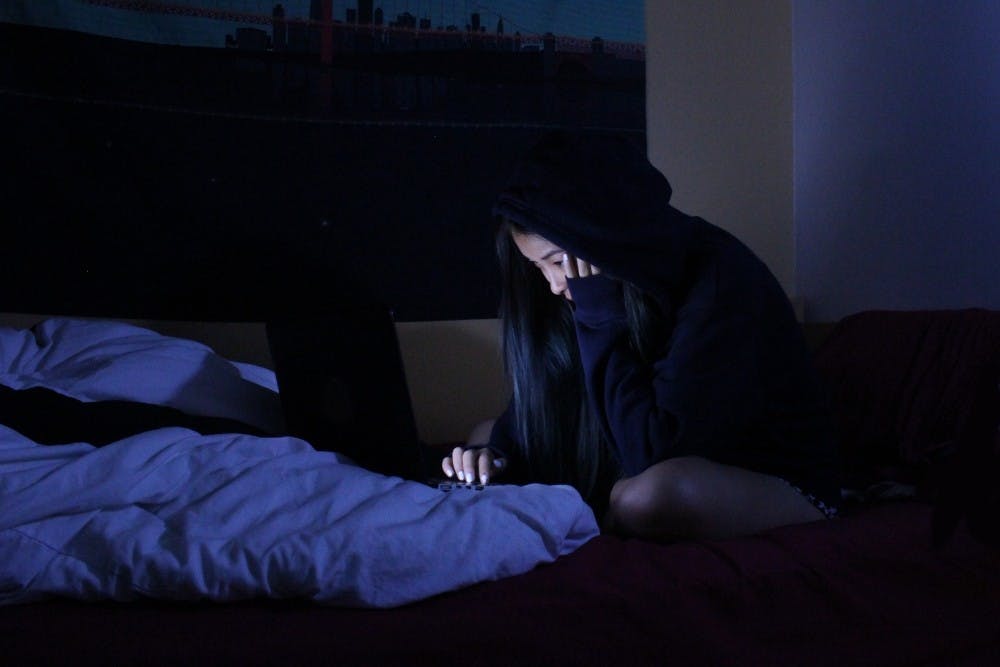
Any Penn student who walks through the door of Student Health Service for an appointment must complete a depression screening test when they check in, even if their medical concern is just the common cold.
The screening, known as the PHQ-2, is unmemorable for many students but has a long history at the University. After the 2009 recommendation by the United States Preventive Services Task Force that all primary care facilities with resources screen adults for depression, SHS began to bolster its resources. In 2013, SHS finally instituted the screening after hiring a licensed clinical social worker.
But many students are surprised by that the initial depression screening is so short, consisting of only two questions.
The questions are: “In the past two weeks, have you been bothered by any of the following problems: feeling down, depressed, irritable or hopeless?” and “Have you had problems with little interest in doing things?” Executive Director of SHS Giang Nguyen said.
If a student scores positively on the first screening by answering yes to at least one question, they are directed to complete the 9-question PHQ-9 survey. In some cases, the high score of the student prompts SHS to recommend individuals to Counseling and Psychological Services.
The test might be brief, but it is effective, experts said. Michael Thase, professor of psychiatry and director of the Mood and Anxiety Disorders Treatment and Research Program at the Perelman School of Medicine, said that those who have depression test positive with a high rate of reliability — "way over 90 percent."
Nguyen said that the test often casts a wider net to ensure student concerns are addressed.
"Someone might say yes [to a question on the screening] but they’re just having a bad week — their dog died and they’re having a reaction to that, or they’re answering it that way because they pulled three all-nighters in a row and they’re just tired,” he said.
Penn's mental health resources have become a focal point on campus in the past few weeks following the death by suicide of College senior Nicholas Moya. Moya was the 14th student to die by suicide since February 2013.
Some students believe the two-question screening by SHS could be improved.
Engineering sophomore Natalie Munson suggested that because of the straightforward nature of the survey, SHS should consider distributing it to Penn students online instead of requiring its completion in person before an appointment.
“They could send out quarterly checkups … a more extensive questionnaire than just two questions,” she said. “That way, students would feel less pressured to be answering in front of someone. That way, they’re in their home, and if they think ‘hey, maybe this is a good choice for me,’ they could answer it.”
While Nguyen understood this concern, he said SHS wants students to complete the screening with resources in the same building.
“I understand that,” he said. “You’re being asked something very personal. Our hope is that the first time you’re asked the questions, it’s potentially a little surprising and uncomfortable, but as people start to go to the doctor’s office more often, they will start to see this is normal.”
Thase, the psychiatry professor, supported the expansion of the screening in the way Munson suggested.
“That’s a great idea,” he said. “There should be access to screeners in the dorms — whatever the Penn personal account on the Web is should have access to screeners."
He predicts screening methods such as this will become commonplace across college campuses nationwide in the near future.
“As a member of the faculty and a supervisor of medical students and trainees here, we’re all concerned with problems with student suicide,” Thase said.
“When people take their life, half the time it’s done on impulse," he said. "To have any large meaningful impact through recognizing and treating depression — which is a major cause of suicide — then I think broadening the screening and making it even more accessible, more available, earlier is really a good idea.”
The Daily Pennsylvanian is an independent, student-run newspaper. Please consider making a donation to support the coverage that shapes the University. Your generosity ensures a future of strong journalism at Penn.
Donate




